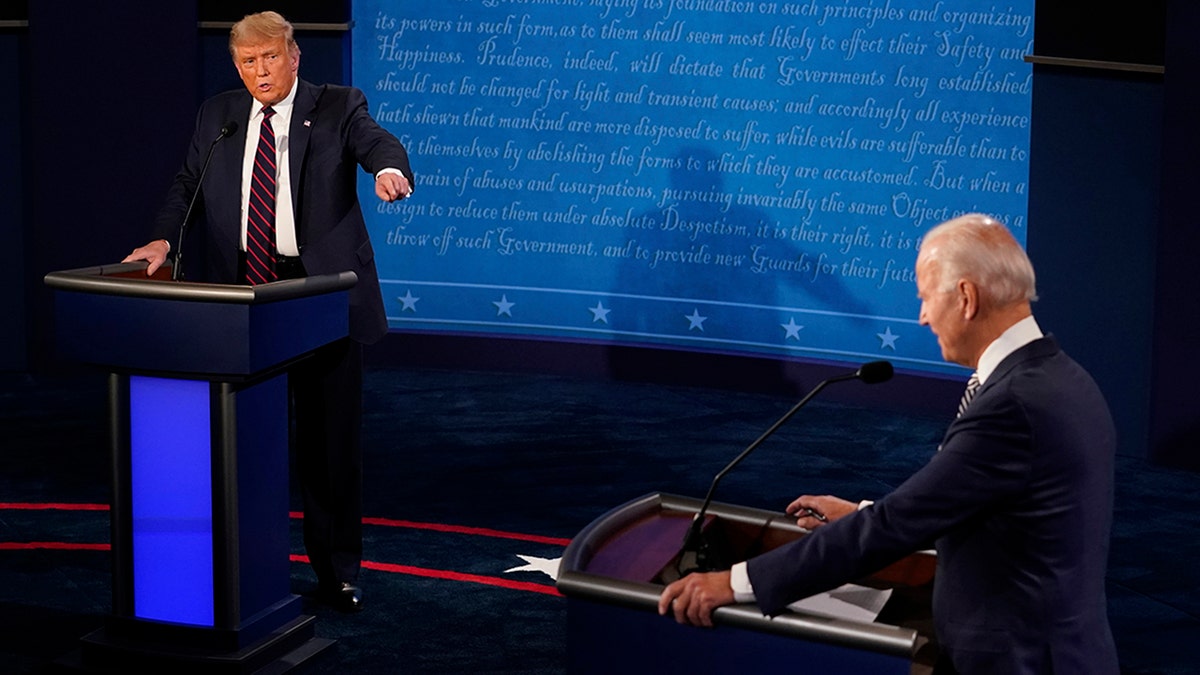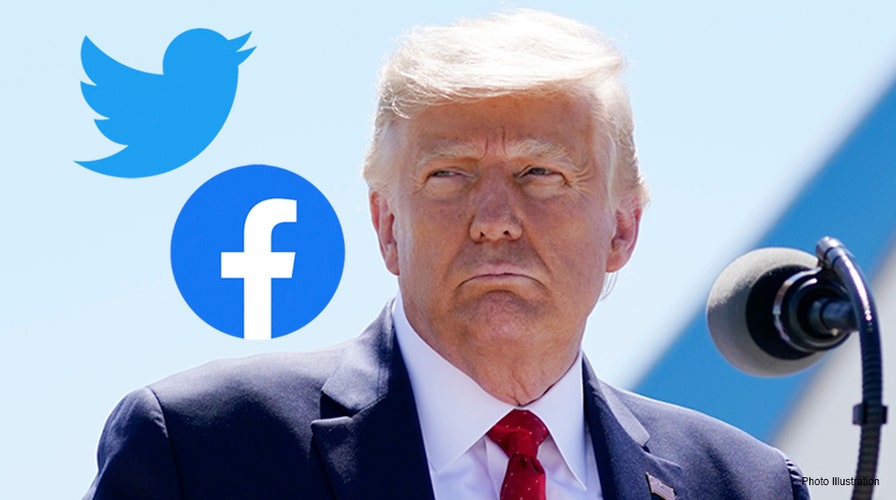President Trump has spent more money on Facebook advertising in Arizona and other parts of the Sun Belt than any other candidate, campaign or business.
According to a report from New York University's Tandon School of Engineering, the president's reelection campaign has poured $3.2 million into Facebook ads in the state since July 1.
THE WHAT-IFS OF TRUMP'S INFECTION
The figure is more than the amount spent during the same period by Democratic challenger Joe Biden, whose $2.5 million in Facebook advertising makes him the second-highest spender.

President Trump responds to Democratic presidential candidate Joe Biden during the first presidential debate on Tuesday, Sept. 29, 2020. (AP Photo/Morry Gash, Pool)
The NYU Tandon Online Transparency Project, which monitors online ad-spending, was built by computer science and engineering teacher Damon McCoy and doctoral student Laura Edelson.
Nationally, the president has invested $59 million in Facebook ads since July, while Biden has spent $39 million.
It is unclear whether the campaign will continue to do so as the president is treated for COVID-19 at Walter Reed National Military Medical Center.
The researchers also found that Arizona Democratic Senate candidate Mark Kelly has spent $906,700 on Facebook ads in the Copper State since July. Kelly spent more than $2.2 million nationally.
The former astronaut is the third-highest political ad spender in Arizona. His opponent, incumbent Republican Sen. Martha McSally, has spent a fraction of that amount at just over $281,700.
CLICK HERE FOR THE FOX NEWS APP
As the Biden campaign has ramped up digital and television ad spending – even following the first presidential debate this week – the Trump campaign has attempted to parry, buying out critical space on YouTube's homepage.
The campaign has plowed more than $170 million into Facebook and Google since 2019, according to The Hill.














































